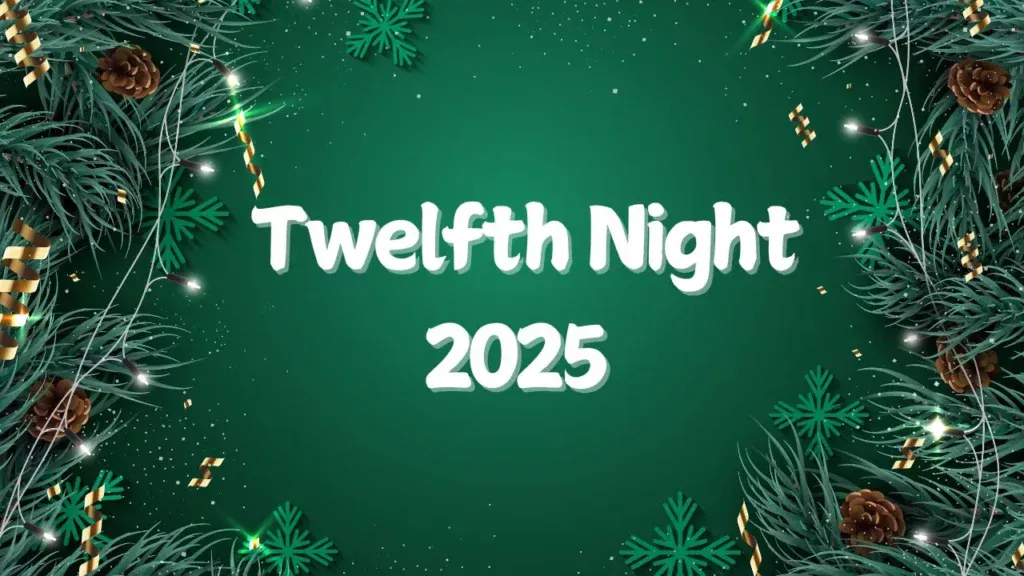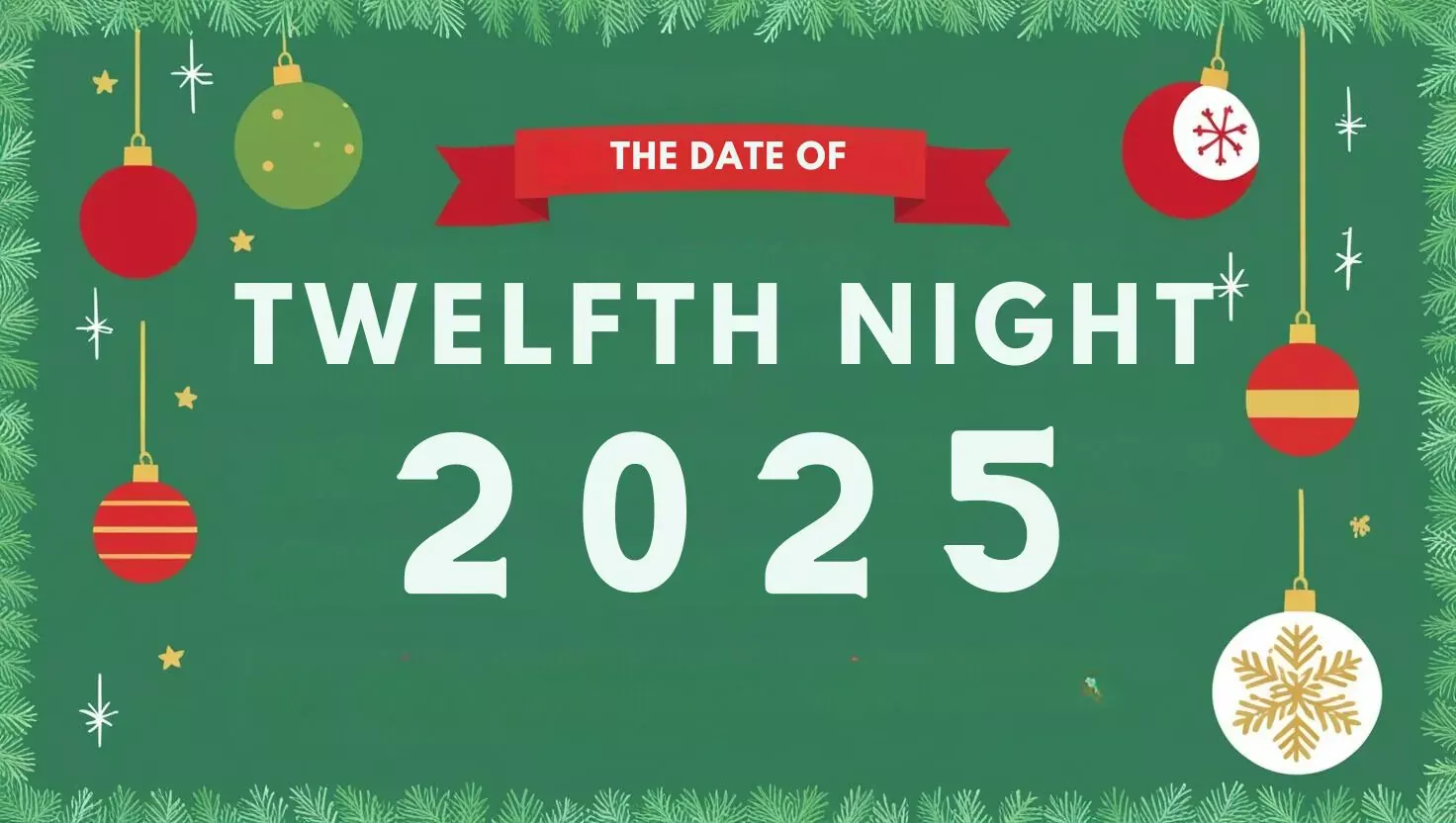Christmas may be the highlight of the festive season for many, but for some, it is just the beginning of the celebrations leading up to Twelfth Night.
Rooted in Christian tradition, Twelfth Night marks the end of the 12 Days of Christmas, a period that has inspired the famous festive song. Here’s everything you need to know about its date, traditions, and significance, including its connection to Shakespeare’s famous play.
When Is Twelfth Night in 2025?

The exact date of Twelfth Night varies depending on Christian traditions and how the 12 Days of Christmas are calculated.
- For some, Christmas Day (25 December) marks the first day of Christmas, making Twelfth Night fall on 5 January 2025.
- Others count the 12 days from Boxing Day (26 December), placing Twelfth Night on 6 January 2025.
Additionally, there is debate about whether Twelfth Night concludes the 12th day of Christmas or occurs the evening before. Professor Nick Groom from the University of Exeter explains:
“Twelfth Night is Twelfth Day’s Eve – we still talk about Christmas Eve as being Christmas Night.”
Regardless of the exact date, Twelfth Night is closely tied to Epiphany, a Christian feast day on 6 January. The Epiphany marks the visit of the wise men to baby Jesus in the Nativity story in the Western Church, while in the Eastern Church, it celebrates both the birth and baptism of Jesus.
Why Do People Take Down Christmas Decorations on Twelfth Night?
One of the most common traditions associated with Twelfth Night is the removal of Christmas decorations. The belief is that failing to take them down by this time can bring bad luck.
This tradition gained popularity during Victorian times when the festive period was shortened to encourage people to return to work. As Professor Groom notes:
“It was basically the Victorians who decided that Christmas decorations should be taken down after 12 days because they wanted to get everybody to work.”
Before this change, the Tudors celebrated Christmas until 1 February, the eve of Candlemas. Candlemas is a Christian festival that commemorates the presentation of the infant Jesus at the Temple in Jerusalem.
What’s the Connection Between Twelfth Night and Shakespeare’s Play?
Twelfth Night has long been associated with feasting, music, and merriment, particularly during Shakespeare’s time. Celebrations often featured masked balls and lively festivities.
It was against this backdrop that William Shakespeare wrote his famous play, Twelfth Night, or What You Will. The play, a raucous comedy featuring twins Viola and Sebastian, was designed to be the perfect entertainment for closing the Christmas season.
While records show the play was first performed on Candlemas in 1602, some scholars believe it may have been staged on Twelfth Night the year before.
What Are the Lyrics to The 12 Days of Christmas?
The song The 12 Days of Christmas has become a festive staple. Its cumulative verses build up over the days, with the first three going as follows:
On the first day of Christmas, my true love sent to me
A partridge in a pear tree
On the second day of Christmas, my true love sent to me
Two turtle doves,
And a partridge in a pear tree
On the third day of Christmas, my true love sent to me
Three French hens,
Two turtle doves,
And a partridge in a pear tree
By the twelfth day, the song concludes with:
On the twelfth day of Christmas, my true love sent to me
12 drummers drumming,
11 pipers piping,
10 lords a-leaping,
Nine ladies dancing,
Eight maids a-milking,
Seven swans a-swimming,
Six geese a-laying,
Five golden rings,
Four colly birds,
Three French hens,
Two turtle doves,
And a partridge in a pear tree.
Why Do We Celebrate Twelfth Night?
Twelfth Night is a joyful tradition that signals the end of Christmas celebrations. Rooted in centuries of Christian history, it blends spiritual significance with cultural festivities. Whether you mark it with a feast, take down decorations, or reflect on its rich history, Twelfth Night is a wonderful way to wrap up the holiday season.

